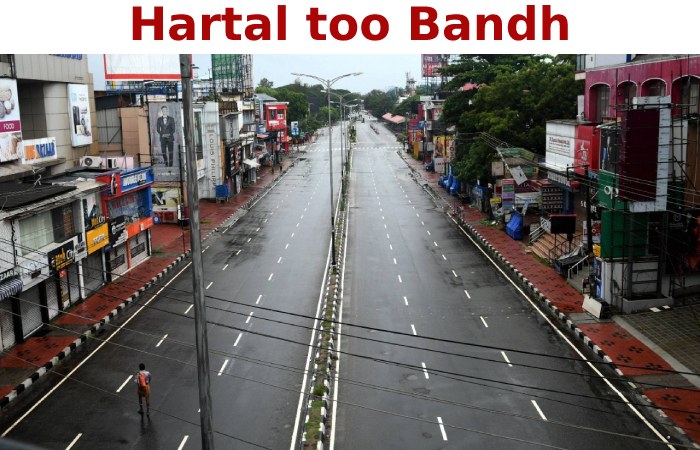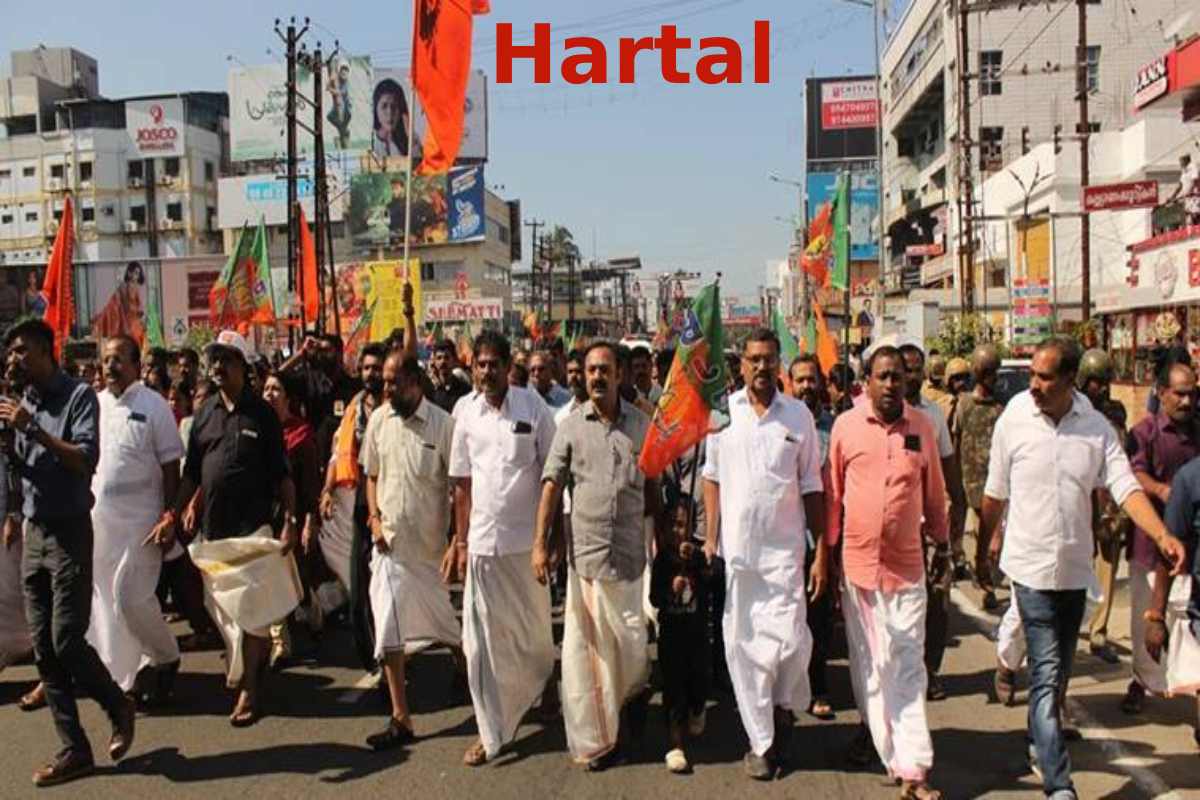Table of Contents
Hartal
Hartal: A period, normally someday, while people do not work because of an argument with an agency or as a mark of respect for a person who has died. And additionally, Concerted cessation of work and business, particularly as a protest against a political situation or an act of presidency. And also, A closing of shops and preventing of work, esp. In political protest.
The word hartal additionally refers to a scenario where a labor pressure refuses to work that allows you to protest in opposition to a company, operating conditions, pay, and many others inside the hope that, via doing this, their needs might meet. In other words, it may also explain the strike to prevent paintings from seeking higher situations, more payor to make different needs.
Who Began Hartal?
Mahatma Gandhi
It changed into Passed within the yr 1919 and to abolish this act Mahatma Gandhi began a hartal referred to as Rowlett satyagraha.
Is Strike Legal in India?
India identified strike as a statutory right under the Industrial Disputes Act, 1947. And strike not expressly diagnose within the Constitution of India. The Supreme Court settled the case of Kameshwar Prasad v. The State of Bihar 1958 utilizing pointing out that strike isn’t a fundamental proper.
What is the Difference between Hartal too Bandh?

Is that hartal is (India) the closure of stores and places of work. Commonly as a strike while Bandh is (India) a preferred strike. A shape of protest used in south Asia in which a good-sized portion of the population stays domestic and does not report to work?
The Advantages and Disadvantages of Hartal
Even difficult the establishing ought to make a few losses to the corporation (because the people refuse to work), it nonetheless has the advantages. The demands of the employees may find out straight away because when the strike starts/begin. The proprietor needs to speak the needs of the workers, as is said in article 141 verse (2) of Act No. Thirteen the Year 2003.
Before and at some stage in the strike, the authorities organization answerable for human resources affairs is responsible for remedying trouble that ends in the emergence of the strike by arranging a meeting and negotiating among the disputing parties.
Besides proudly owning the blessings, the exertions strike also has a downside, especially for the business enterprise. The employer will get a few losses because the organization can’t produce its items (five). And it’s possible too to lose their customer due to the pending production. And loss of an obligation of the organization.
Impacts on Society
Economic Disruption: The economic impact of Hartal can be significant. Closing businesses and services can lead to financial losses for individuals and the broader economy.
Public Awareness: Despite its disruptions, Hartal is an effective method to draw attention to specific issues. Media coverage and conversations among the general increase during such events.
Political Pressure: Hartals often use to pressure governments into addressing the protesters’ demands. The success of a Hartal can lead to concessions or negotiations with the ruling authorities.
Unity and Mobilization: Hartals can foster a sense of unity among the protestors, reinforcing their commitment to a cause and strengthening their voice.
Historical Background
The origins of hartal can draw back to the colonial era when it was use to resist oppressive British rule. Over time, this form of protest evolved and became deeply ingrained in the cultural and political fabric of many South Asian countries.
Conclusion
Generally, Hartal of Labour Hartal is the act of people to stop running as the shape of protest to the employers. But now and again, moves use to pressure governments to exchange rules.
In a way, strikes first have become vital for the duration of the economic revolution. When mass labor has become essential in factories and mines. In most international locations, they had fast make illegal, as manufacturing unit proprietors had more political energy than employees.
A strike may encompass employees refusing to attend work or picketing out of the workplace to prevent. Or dissuade human beings from operating in their area or engaging in business with their employer.
Many actions may be finished by using the labor strike, both through a lock-out of employees (blockading people from working commonly, resulting in loss of wages). Or via a funding strike (refusing to devote funds to retaining or increasing manufacturing).
Besides the advantages, the hard work strike also has negative aspects, both influence the political and affordable stability. Or make the worst situation of the agency. Even though the setting up of strike can stand up a few risks. However thus far, it’s assured by the policies and didn’t infringe the provisions, the exertions strike remains allowed.
Also Read: Greater Bangladesh – Definition, Land, Liberation, and More

